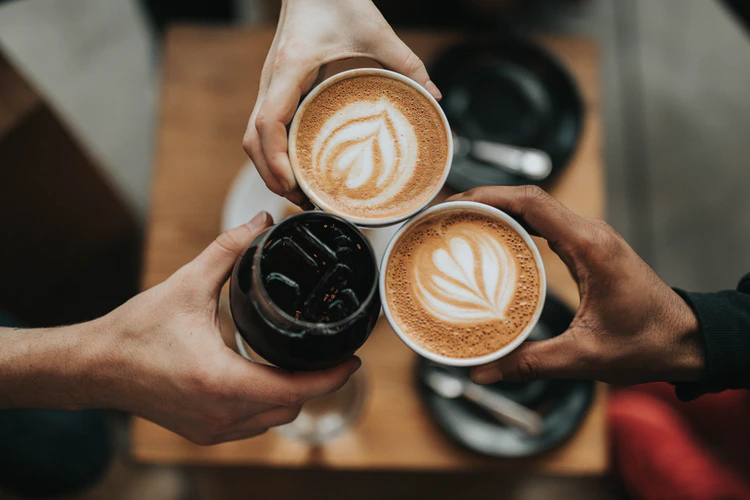Without a fancy espresso machine, you can make a cup of artisanal coffee at home whenever the craving hits.
A Beginner's Guide for Making the Perfect Pot of Coffee Every Time
If you're tired of spending your hard-earned money every morning at coffee shops, we'll teach you a thing or two on how to brew your own coffee at home. Stop paying premium prices at your go-to coffee shops, and instead, start making your own coffee right at home. It's a lot easier than you think.
We'll divide the coffee-making process into four major components—equipment, coffee beans, coffee grounds, and water.
The Equipment
There's no way around it—you absolutely have to invest in the best equipment and supplies to get your coffee just the way you like it. That's not to say that drip coffee machines are bad, but if you're looking for a more artisanal flavor, you need to invest in the best grinder, scale, filter papers, etc.
However, you can bypass most of the mind-numbing calculations and guesstimates by getting an automatic coffee maker. The best automatic coffee maker will come with a wide assortment of features that make brewing coffee much less meticulous without sacrificing body, flavor, and aroma.
The Coffee Beans
Now, there's a lot to talk about concerning coffee beans since the flavor of your coffee is heavily dependent on the type of bean you use.
Pre-Grinded vs. Fresh Beans?
Pre-grinded coffee is fine if you're a decaf drinker, but if you want to brew a pot that's as good as the stuff you can get from famous coffee shop chains, then you have to purchase whole beans.
When shopping for beans, you'll come across various flavor factors, including the grind's texture, roast type, bean variety, and country of origin. Even though the choices are virtually limitless, there's no right or wrong coffee bean. The best part about brewing coffee at home is experimenting with different beans and finding the perfect match for your tastebuds.
Ideally, you'll want to purchase freshly roasted whole beans. The longer the rest period between roasting and burr-grinding, the less potent the grounds become. You can ensure maximum freshness by purchasing whole beans from local retailers who roast them in-house, but even grocery coffee beans can work. Just keep the beans in a dry place, away from sunlight, and with as little exposure to air as possible.
The Coffee Grounds
The best time to grind your coffee beans is immediately before brewing as it releases maximum flavor. To do this, either rely on the built-in grinder in your automatic coffee maker, or you can use an electric burr grinder or even a hand grinder.
How Does Grind Size Affect Flavor?
Please note that the size of the grind can impact the flavor profile of your coffee. A bitter taste can mean you over-grinded your coffee beans. If there's a flat taste that's void of any coffee-ness, it might be because you didn't grind the beans enough.
Alternatively, you can ask your local coffee bean retailer to grind them for you (they'll have the proper equipment if they're any good at what they do), but you should make sure the grinds are kept in a dry space without exposure to sunlight and foul smells.
The Water
You pretty much have two choices when it comes to which water to use: tap or filtered. Ideally, you'll want to use the water with the smallest mineral concentration, but if you don't mind making coffee with tap water, allow the water to flow from the faucet for a couple of seconds before filling the pot. Avoid using distilled water at all costs.
How Much Coffee and Water?
When first experimenting, follow the Golden Ratio—1-2 teaspoons of coffee grounds per 6 oz. of water. You can always adjust the coffee-to-water ratio in future trials.
How Hot Should the Water Be?
Here's where having an automatic coffee maker with a built-in heating element and water reservoir would come in handy. The water should stay between 195 and 205°F throughout the extraction process to maximize flavor and aroma. Too cold, and you lose out on flavor and aroma.
Brewing Time
The perfect brewing time depends on various factors, including whether you're using a drip system or a French press, what sort of drink you're making, and how you take your coffee.
Final Thoughts
Making a high-quality cup of coffee at home isn't as difficult as large coffee chains want you to believe. Just invest in a few key pieces of equipment and spend some time learning about how the brewing process works. Remember: there's no right and wrong way of making coffee. You'll have to experiment with different temperatures, ratios, and brewing times before nailing the recipe.




 StableDiffusion
StableDiffusion StableDiffusion
StableDiffusion StableDiffusion
StableDiffusion Photo by
Photo by  Photo by
Photo by  Photo by
Photo by 
 Photo by
Photo by  Photo by
Photo by  Photo by
Photo by  Photo by
Photo by  Photo by
Photo by 






